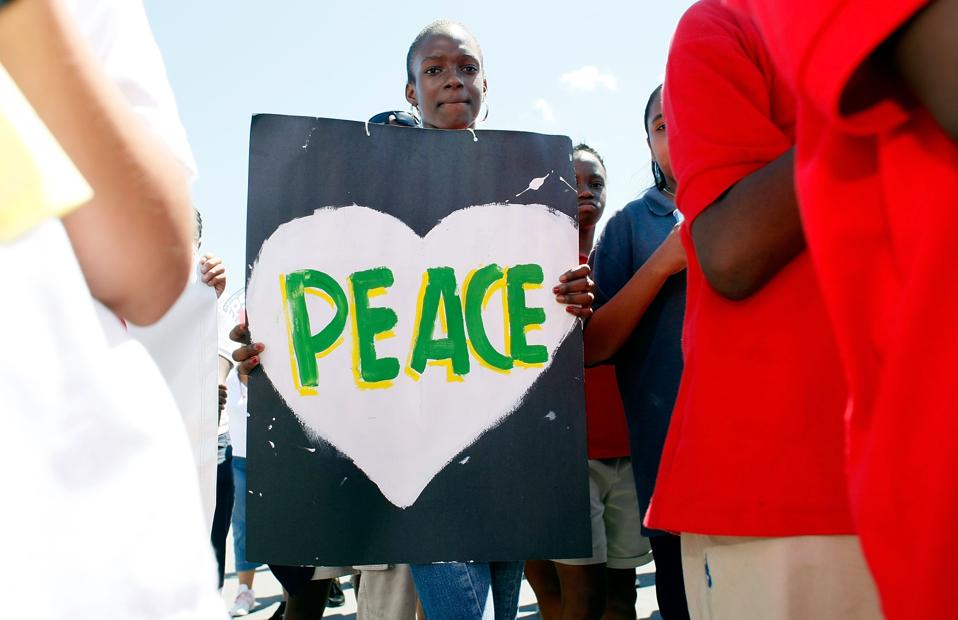In the modern era, a durable peace to major conflicts has required three essential elements.
The first is territorial security—matters of borders, bases, and bombs. The second is the restoration of economic stability, especially for those on the losing side of conflict.
The third element is the transformation of “hearts and minds”—a.k.a., a redirection of soft power—so that leaders and populations no longer see war as their best option.
Soft power is the sum of pervasive—often unwritten—worldviews, attitudes, mindsets, biases, and habits that bind people together. In other words, their norms.
These norms are created over decades and even centuries, and often are imbued with shared narratives of victimhood or superiority. They can easily override well-intentioned efforts designed for the moderate and open-minded who seek peace.
But how much do we actually know about the business of changing hearts and minds?
How We Know Each Other Matters
“Face-to-face” programs are often viewed as a readily available tool. However, the efficacy of hundreds of small people-to-people programs was reviewed in a massive, groundbreaking study in 2006 and again in a more rigorous review in 2019. The results were mixed.
The experience of reconciling entire populations is likewise a mixed bag.
The horrific tragedy of Hiroshima and Nagasaki would seem enough grist to form eternal bitterness.
But by 2015 three quarters of Japanese said they trusted America. This, from an island nation that comparatively few Americans visit.
People can change their minds with inspiring leadership and reframed narratives about the future and the past, but it is slow work.
More than 30 years after the fall of the Berlin Wall, those living in the former East Germany still have high levels of conspiracy theories, xenophobia, and nostalgia for strongman government.
The Language Of Peace
The language we use is a norm. It can be used to rationalize and intensify discrimination before a conflict or to justify abuses after the fact.
Acting inhumanely toward another person comes much easier if one carries a mental picture of the victim as vermin (Hitler’s terms for Jews), cockroaches (Hutus’ term for Tutsis), or the genetically deformed (Serbs’ term for Bosnian Muslims). Fascists and dictators know dehumanization works.
The decision to allow or sanction such language in civic debates is collective and long term.
As South African Anglican bishop Desmond Tutu said, “Language is very powerful. Language does not just describe reality. Language creates the reality it describes.”
There is reason for some cautious optimism such as the push represented by the United Nations’ Code of Conduct for disinformation and hate speech. The global community is inching fitfully toward a new norm.
We Were Right About Rights
We should resist the impulse to think that we have made little progress in affecting global norms since the olive branch politics of antiquity, or to think that norms are largely intractable.
The concept of human rights went from an idea to a norm to a formal law in roughly 100 years. Less than a century after that, it became a universal aspiration—a common language of justice. That’s practically light speed in terms of social progress.
When I was born, truth and reconciliation commissions were scarcely a figure on the landscape of societal norms. After the high-profile work of South Africa’s Truth and Reconciliation Commission in the late 1990s, more than 40 nations undertook some sort of interim “restorative justice” step toward lasting peace.
The mere fact that such efforts are allowed to proceed is our new social norm. Nowhere is it dictated that citizens should prefer these ad hoc solutions to the usual machinery of their governments.
As a native of Sri Lanka, the dubious, halting steps toward the creation of a credible truth and reconciliation process there has been disheartening to watch.
A truth and reconciliation process is not a public relations exercise for battlefield victors. It requires a solid commitment by both winners and losers, independence for those who administer it, adequate resources, a transparent mechanism for accountability, and a secure space for victims to bear witness to the truth without recrimination.
How We Lead Matters
The way to peace is not to wish idly for love languages and people-to-people rapprochement that is more high-minded than our leaders.
We must carefully select and elevate leaders who recognize just how ungainly and challenging, but essential, the toolkit offered by influencing social norms truly is.
The language we use, the stories we tell, the face-to-face meetings we convene, the respect we accord those who seek to compromise—all are influenced, albeit imperfectly, by our leaders.
Leaders may be patient or impatient, eloquent or crude, far-sighted or impulsive. Regardless, every time they act or speak they are affecting our future and its prospects for stability.
Making war can become a habit, a norm, that outlasts any generation or leader. So can making peace. That ultimately should be one test of whom we elect: is your leader instilling a habit for peace?

